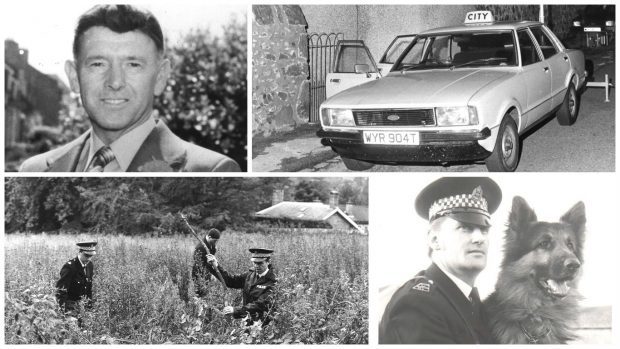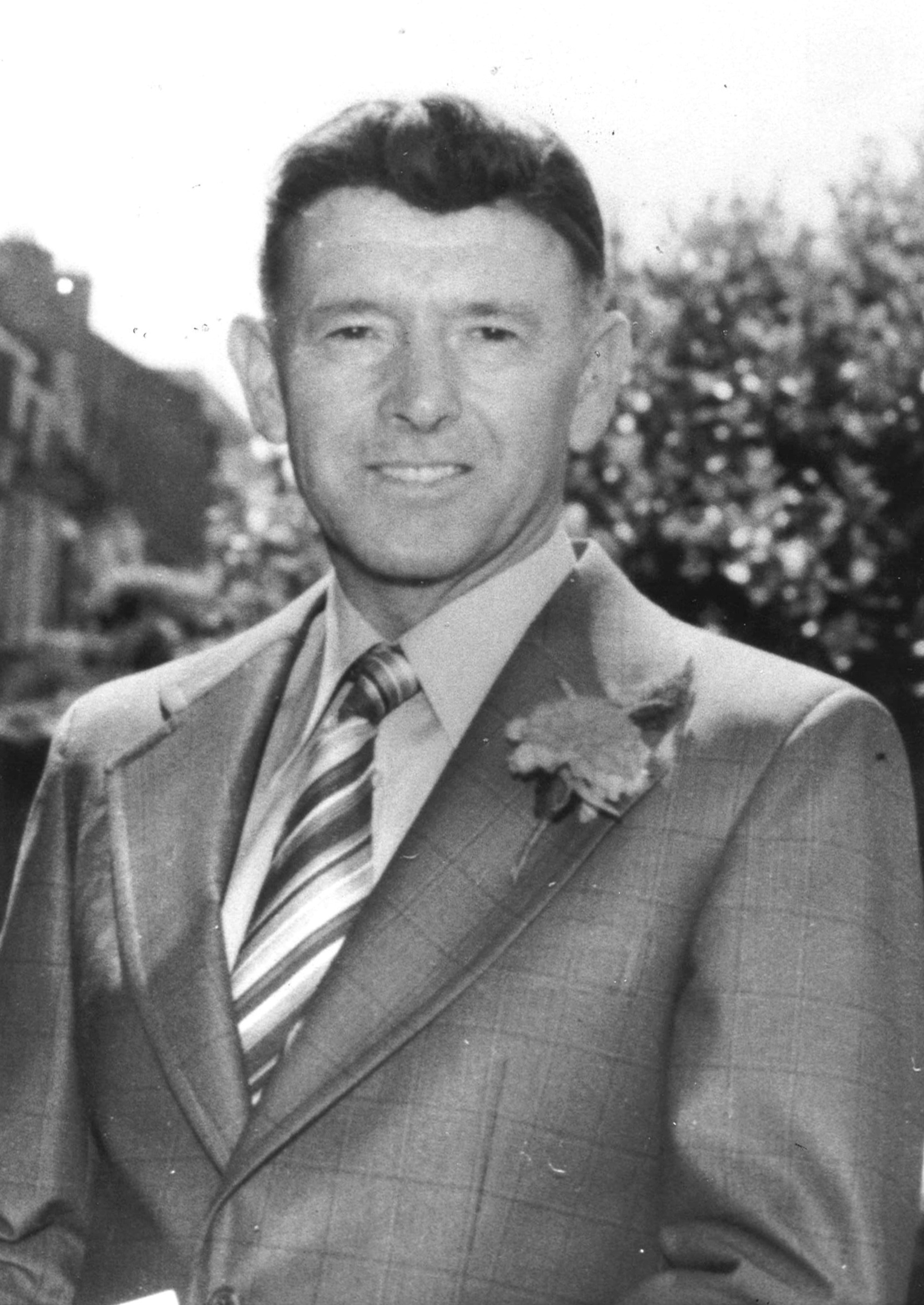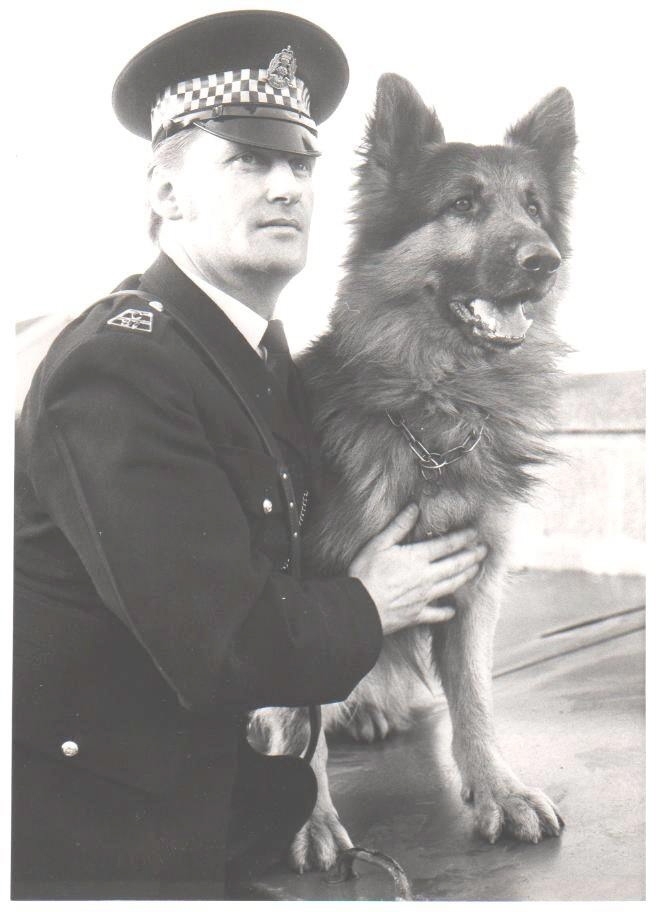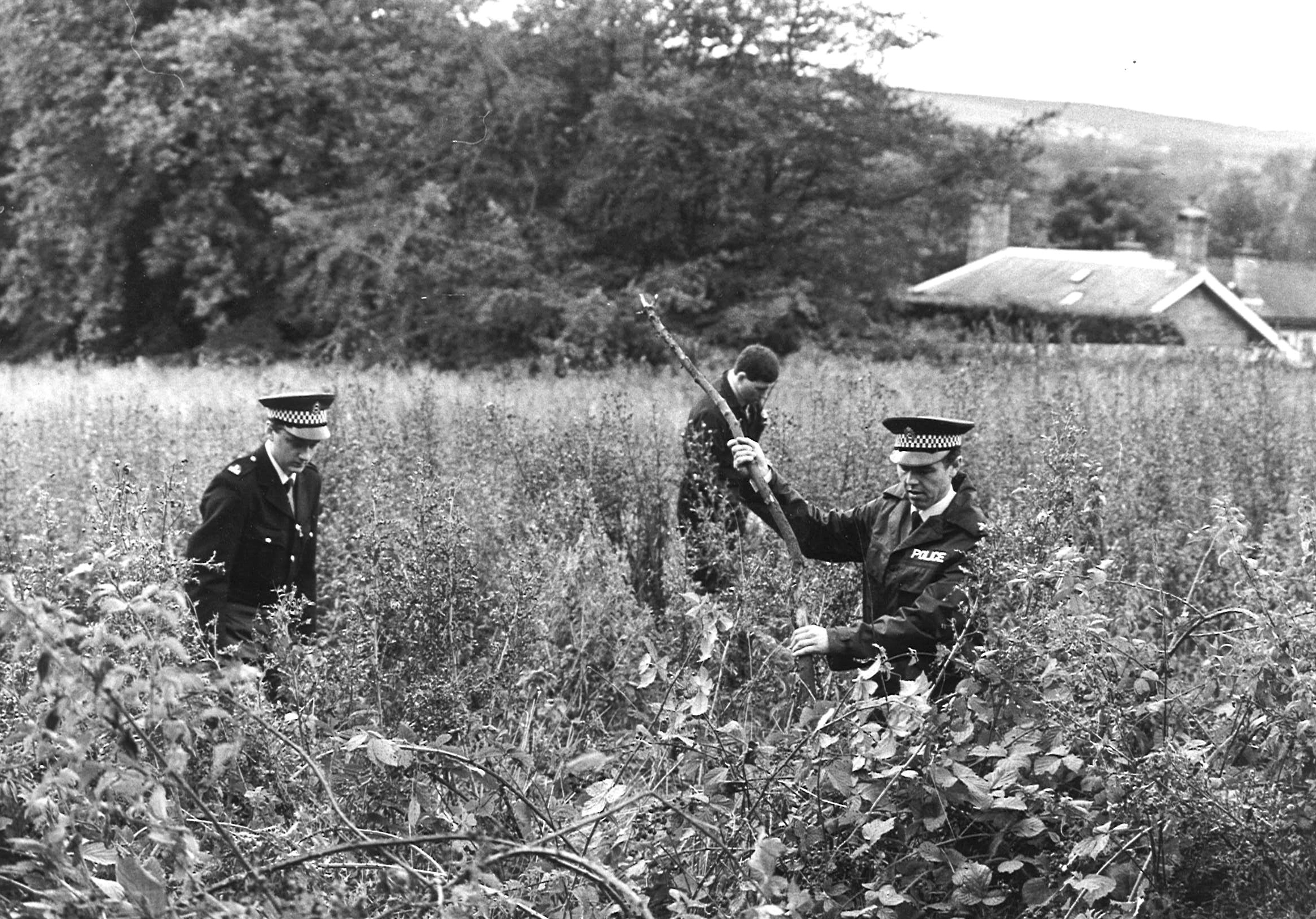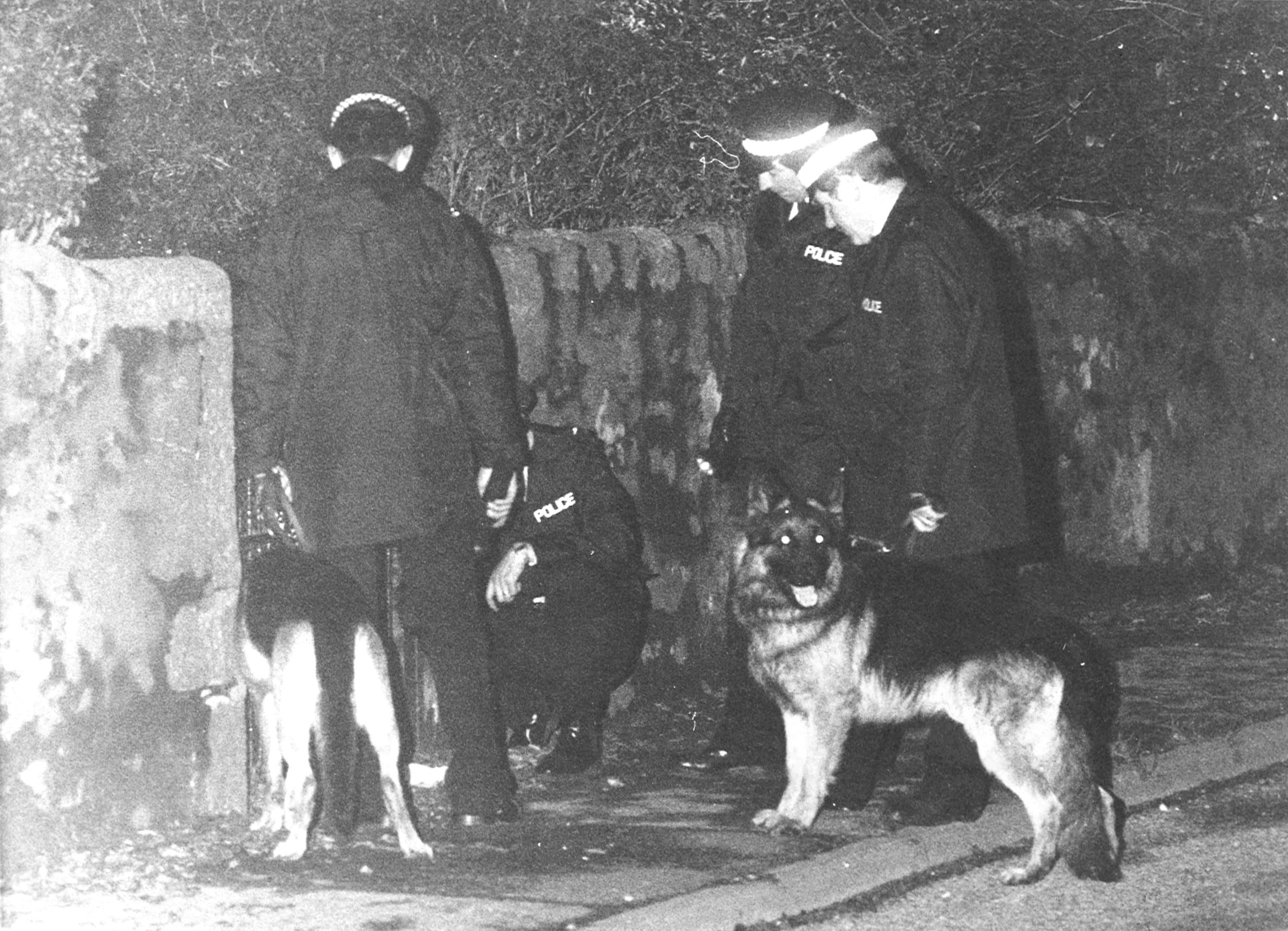The police dog handler who was first on the scene of one of Aberdeen’s most notorious unsolved murders has blamed the decisions of police chiefs at the time for the killer evading justice for 33 years.
Taxi driver George Murdoch was brutally slain on September 29, 1983 shortly after picking up his last fare of the night.
His murderer – dubbed the “cheese wire killer” after an implement found at the scene – has never been caught.
But former police officer Allan Hendry, now an Aberdeenshire councillor, is convinced his superiors missed a perfect chance to quickly wrap up the case.
Three decades on, he still has a “feeling in the pit of my stomach” that he was sent off on a wild goose chase while the killer lay hidden nearby watching the investigation unfold – and has good reason to believe he is right.
At around 8.30pm on the fateful night, 58-year-old cabbie Mr Murdoch radioed into his control room to say he had just picked up a customer from Queen’s Road wanting to go to Peterculter.
But just after 9pm, police received a call after witnesses spotted the driver being viciously assaulted outside his sky blue Ford Cortina taxi on Pitfodels Station Road – more than four miles short of his stated destination.
Mr Hendry found him lying in a puddle of blood, with severe injuries all over his head, face and neck – but still breathing.
By the time the taxi driver was lifted into an ambulance however, he was dead.
Some 17 days later, staff at the Mr Chips takeaway in Mannofield reported that a strange man, bleeding from his hands and face, had ordered a fish supper just a short while after the killing.
For many years it has been believed that this individual was likely to be Mr Murdoch’s killer.
Mr Hendry has now come forward to argue that the bleeding man in the chipper could not have been the murderer – and the real attacker got away because of the “inefficiency” of his superiors in the force at the time.
After calling for backup, he was ordered to take his search dog Nicky, a German Shepherd, all the way out to Peterculter and comb the old railway line through the pouring rain, back towards the scene of the killing.
But he believes that had he been allowed to follow his instincts at the time, the police could have caught the killer at the scene – because the murderer was hiding just feet away in a nearby field, watching the emergency services attempt to save his victim’s life.
Mr Hendry said: “I’ve just got this feeling in the pit of my stomach – the police didn’t do a good job, and I think the police could have done a lot more at the time, which they didn’t do.
“They just went into a different direction, shall we say, and as a result of that the trail went cold and they have never managed to get this individual.”
He said: “It was poor judgement by the officer in charge that showed up that night and sent me to Peterculter.
“I thought that was a very, very poor call – he should have allowed me to do what I was trained to do, and that was to search the immediate locus of a serious crime.
“But instead, he instructed, fairly forcibly I may add, me to go to Peterculter and walk back along the old railway line – which I thought was an absolute bloody waste of time to be perfectly honest with you.
“I was absolutely convinced this guy had ran across this field down towards the line, so when I got out in the morning – the rain had stopped by that time – I cast my dog out into that field.
“Lo and behold, he indicated a patch of ground behind the embankment which is right on the edge of Pitfodels Station Road in this field where someone had obviously been lying.
“I still honestly believe, in my heart of hearts, that if I had been allowed to search that field, there’s every likelihood that guy would have been there.”
A police spokeswoman said that although she couldn’t comment on the specifics of the investigation, officers are still trying to find the killer.
She said: “Police Scotland is committed to investigating all unresolved homicides and these are reviewed to ascertain if there are any new evidential developments, including advances in forensic techniques, which would assist in providing a basis for criminal proceedings.
“Anyone with information regarding this crime should contact us on 101, or Crimestoppers on 0800 555 111 if you wish to remain anonymous.”
